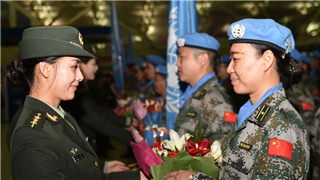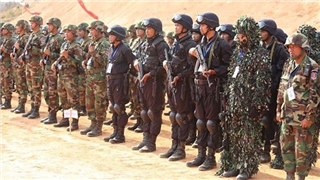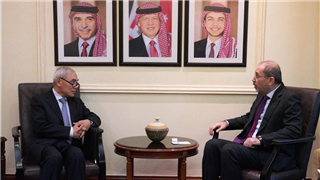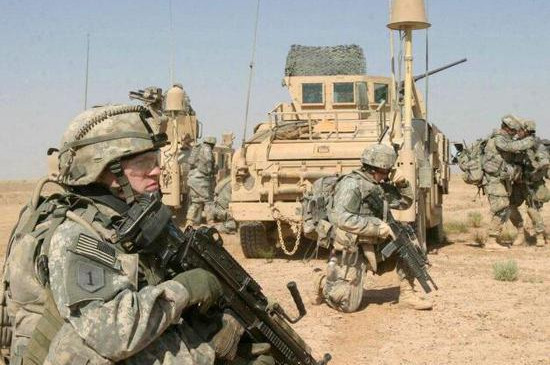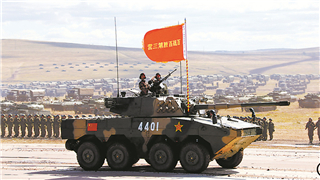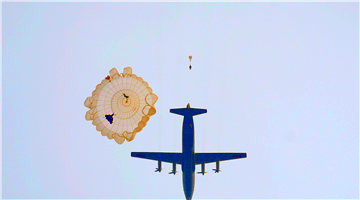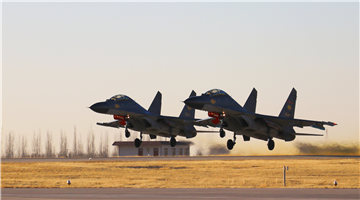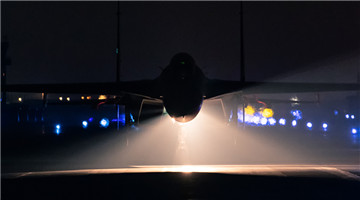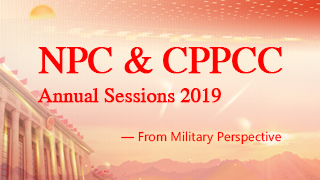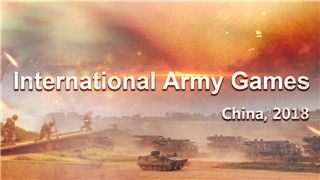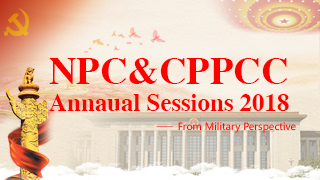By Wang Weixing
At this crucial time for safeguarding the peaceful development of Cross-Straits relations and pushing forward the peaceful reunification of China, Tsai Ing-wen put forward the so-called “Taiwan solution” to counter the policy of “One Country, Two Systems,” which evidences her nature as a Taiwan separatist.
The public in Taiwan, especially the military, must keep a clear mind and realize that the “Taiwan independence” separatist activities are against the tide of our times and cannot stop the peaceful development of Cross-Straits relations and the peaceful reunification of China, so as to avoid making misjudgment and being deceived.
Although political disagreements still exist between the two sides of the Taiwan Straits and China has yet to be unified, the country’s national territory has never been split. Both the mainland and Taiwan belong to the same China, which has been a fact since ancient times and won’t change in the future.
The relationship across the Taiwan Straits is internal relationship, never international relationship. From the perspective of current laws and regulations of both sides, military developments in the mainland and Taiwan are both integral parts of China’s national defense system. The armed forces of both sides should all be regarded as the guardians of China’s national security and national defense constructions.
The military members of both sides are all Chinese troops. Any individual or political party attempting to split the motherland would be the traitor of the Chinese nation, that is, the common enemy of the Chinese military.
Therefore, every officer and soldier in every barrack in Taiwan should support “One Country, Two Systems”. By so doing, they are actually defending the concrete interests of the Taiwan military. Defending the peaceful development across the Taiwan Straits, in essence, is safeguarding their own life and property.
Safeguarding the legacies of ancestors of the Chinese nation is the shared responsibility of troops of both sides across the Taiwan Straits. The Chinese army stationed in Taiwan has a glorious history of patriotic tradition and practice. Over decades, Chinese armies of both the mainland and Taiwan have collaborated to oppose separatism and supported each other in opposing the US proposal for “separated administration across the Straits” and defending Xisha, Nansha and Diaoyu Islands.
Today, both armies station troops on islands and reefs in the South China Sea to protect the legacies left by ancestors of the Chinese nation. Such efforts have never ceased, and should not slack off in the future. To safeguard the legacies left by Chinese ancestors, defense departments of both the mainland and Taiwan must strengthen communication, instead of undermining each other, and work together to evade provocation and estrangement by others.
Ultimately, the purpose of making clear who we are and what duties we take is to truly understand the important historic missions on our shoulders. It is the common destiny to share the future of the nation and the glory of the motherland. Despite seven decades of political confrontation, the Taiwan military has never betrayed and separated the history of our common motherland.
However, the later the reunification of China is achieved, the more suffering Taiwan soldiers and officers will endure. At a crucial time to determine the fate of our nation, we need to depend on the prosperity of our own country, instead of any Western country.
Only when the Taiwan military supports national reunification, safeguard the territorial integrity and national interests of the motherland and make contributions to the great rejuvenation of the Chinese nation, could they retain the glory that has been handed down from generation to generation since the nationalist revolution of China.
The Chinese mainland has always advocated the principle that affairs concerning the interests of the people in a specific region should be solved through extensive consultations among the people in the region, and affairs concerning the interests of a specific group of people should be solved through extensive consultations among this group of people. As for the military arrangement of Taiwan under the framework of “One Country, Two Systems,” the Chinese mainland has been eager to hear the voice of the Taiwan military and is willing to listen to sincere suggestions from Taiwan compatriots. Based on joint discussion and research, appropriate ideas and suggestions will be included in the final Taiwan solution of the “One Country, Two Systems” policy.
In highly dangerous period, the Taiwan military is likely to fall victim to some politicians with ulterior motives. To defend their own interest, Taiwan soldiers and officers, as part of the Chinese military, must firmly oppose “Taiwan independence”. In peacetime, the Taiwan military will be the direct beneficiary of the reunification of China. Therefore, they should take the initiative in opposing “Taiwan independence” and become the core force to support “peaceful reunification,” through the implementation of “One Country, Two Systems”.
For this reason, the Taiwan military should stay vigilant toward rumors and distortions on “One Country, Two Systems” and take the initiative to defuse misconceptions. They need to realize that the policy of “One Country, Two Systems” is the best solution for reunification that takes into account the actual conditions of Taiwan, recognize the importance of “peaceful reunification” through implementing “One Country, Two Systems” in maintaining peace in the Taiwan Straits and safeguarding the wellbeing of Taiwan compatriots, and take an active part in exploring the Taiwan solution for realizing “One Country, Two Systems” through mutual consultations.
(The author, Major General Wang Weixing, is a chief expert at Chinese PLA’s Academy of Military Sciences and an academic consultant of the Cross-straits Relations Research Center.)

